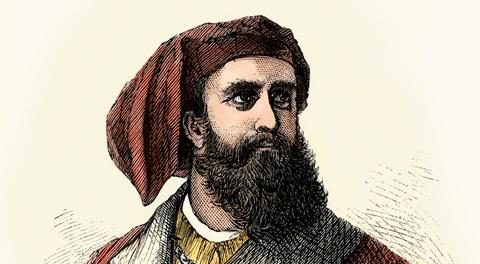These are my notes for the K5M Book Club on the book Money, by Jacob Goldstein.
Join the K5M Book Club
Chapter 2 – When We Invented Paper Money, Had an Economic Revolution, Then Tried to Forget the Whole Thing Ever Happened
In that initial anecdote about Marco Polo and Pisan the part about his travels to China and encountering paper money start with “This is so crazy, you’re not going to believe me.”

This reminded me of when I was the co-founder of a tech company and we went to pitch a room of angel investors and had to explain to them what the blockchain was. We didn’t realize it at the time but we were basically prefacing our pitch with “This is crazy, but believe me…” but it wasn’t entirely our fault, those rich investors should have known about crypto by them (and some of them did, and they invested!). Anyway, some things that seem crazy are actually pretty cool.
It’s 105 AD and a Chinese emperor has an officer “in charge of tools and weapons” who literally invented paper! That’s an amazing hire right there! His name was Cai Lun and there is definitely more to this story!

An excerpt from the wikipedia page about Cai Lun:
There were many officials in the kingdom who not only despised the deceased Dowager Empress Deng Sui, but also her allies that were still in power. In order to remove these allies, a false rumour was spread that a coup was being planned to overthrow Emperor An; the rumour alleged that Cai was involved in the plot.
Sinologist Rafe de Crespigny notes that Cai was not helped by the fact that Emperor An was the grandson of Consort Song, who death was in part because of Cai.
Cai was ordered to reported to prison to answer the charges, but since he was likely to be killed he instead went to his house to prepare for his death. Ever since the death of his ally Empress Deng Sui, Cai carried a poison that he had made when he was the chief of the Imperial Supply Department.
Cai, ashamed that the Emperor would send him to death in such a dishonorable way, bathed and dressed in formal clothes before killing himself by drinking the poison. Cai’s death date and place are unknown, but various monuments and shrines have been erected to honor him.
Clearly more to learn about this! It’s like Game of Thrones!
I loved that the earliest bills were differentiated by images, color, and size. Just like Canada or Europe do today! So the government started out with receipts, then businesses started making receipts, and then the scammers came along to ruin the whole thing.
“As it spread across China, trade increased, people learned more from each other, and technology improved.”
I know I compare everything to bitcoin and early internet, but I can’t help it, I’m a 90’s kid! This just feels so much like early internet days, and just like the boom and bust cycle we saw with that, so too did China have a boom and bust cycle.
“Markets and money made cities.”
One of my favorite things when traveling to new cities or towns is to look up what the historic industry was that made the place a PLACE. Like for Portland, Oregon where I used to live, it was logging* (which is where the nickname Stumptown comes from) and there is still a lot of old timber money families in the city.
*Of course that was after it had been occupied for 11,000 years by the Multnomah people
“Hongwu wanted to take China back to a (totally idealized) past…”
Wait, is this a “Make China Great Again” reference? Emporer Hongwu, founder of the Ming Dynasty, built his empire on a false nostalgia and it lasted 300 years? That makes me feel weird.
But holy shit, the story of the rebellion is awesome (from wikipedia):
Agriculture and the economy were in shambles, and rebellion broke out among the hundreds of thousands of peasants called upon to work on repairing the dykes of the Yellow River.
A number of Han Chinese groups revolted, including the Red Turbans in 1351. The Red Turbans were affiliated with the White Lotus, a Buddhist secret society.
Zhu Yuanzhang was a penniless peasant and Buddhist monk who joined the Red Turbans in 1352; he soon gained a reputation after marrying the foster daughter of a rebel commander. In 1356, Zhu’s rebel force captured the city of Nanjing, which he would later establish as the capital of the Ming dynasty.
Isn’t this kind of the plot of Star Wars?

